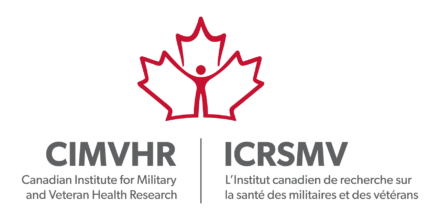

By Dr. David Pedlar, Scientific Director of the Canadian Institute of Military and Veteran Health Research (CIMVHR)
“Open science” is an umbrella term that encompasses a series of proposals for change in research practices based on the principles of openness, transparency, inclusiveness, sustainability, public access to data, the collaboration of researchers, data sharing, and enhanced commitment to knowledge translation and implementation. The “open science movement” – a loosely linked set of national and international activities and initiatives – aims to maximize the economic and social impact of research through open science informed research policies. The roadmap for open science in Canada is part of the 2018-2020 National Action Plan on Open Government. Many Canadian federal government departments are implementing multi-year open science action plans, such as Health Canada, Department of National Defence/Canadian Armed Forces, the National Research Council and Statistics Canada to name a few.
Rapid advances in technology and research know-how are creating the need for and momentum towards an open science agenda. Bigger and more complex problems can be tackled more effectively and quickly thanks to abundant internet and wifi, connected data storage platforms, the collaboration of multi-discipline researchers and data networks. These include electronic medical record surveillance systems like the Canadian Primary Care Sentinel Surveillance Network, data warehouses that enable multiple uses of data in health care for clinical and research purposes, software innovations that permit complex and sophisticated analysis, and integration of massive amounts of complex data. In addition, research institutes like the Canadian Institute for Military and Veteran Health Research act as knowledge intermediaries, fostering research impact by facilitating knowledge development through research collaborations, as well as knowledge exchange and use in inclusive, evidence-informed policies, practices, and programs
Social and productivity considerations are also push factors: a premise of open science is that publicly funded science be considered a common good versus a private commodity or isolated ‘Ivory Tower’ for researchers. Hence, open science is a call for openness and transparency at all stages of the research process: multiple perspectives in problem definition, public accessibility of data, more accountability in the credibility of research in reproducibility of results, and changes in research and academia culture. Furthermore, incentives and better accountability for the societal impact of research investment in measurable results needs to happen. Finally, open science calls for skills sets that are not always cultivated in academic curriculum: project management of multi-disciplinary teams and the development of transdisciplinary shared language. This is another area where research institutes can bridge the gaps in skill sets by providing access to researchers to specialized staff, services, and training.
Is open science Canada’s best bet to refresh science policy in Canada? Will it help improve the public confidence in science integrity during an era of “truth decay” (Rand Corporation, 2016) – the increasing public distrust of science amidst a cascade of mis- and dis- information? Is open science achievable in the face of the ongoing commodification of data in the rise of high-cost pay-wall scientific journals that closes access to publicly funded research? Will academic and research culture incentives become more open to collaboration and sharing of data and team or network recognition for research results? Can policy, legal and cultural barriers be reduced to recognize the social benefits of technologies that have enabled the huge potential of data linkage and data transfer to improve research and analysis to support clinical health care and population well-being? Can we improve knowledge translation, brokering and mobilization to better demonstrate the efficiency and impact of research investment?
It is the responsibility of all of us in the research community to keep pushing against the numerous existing barriers to make open science a priority in Canada. Affiliation and participation with research institutes within our respective areas of scientific interest can also amplify our abilities as individuals to contribute to a greater knowledge pool that can also be more accessible and inclusive through knowledge translation and exchange.
 The Canadian Institute of Military and Veteran Health Research (CIMVHR) is a Sponsor of Research Canada’s 2022 Annual General Meeting. Visit rc-rc.ca/2022-annual-general-meeting/ to learn more.
The Canadian Institute of Military and Veteran Health Research (CIMVHR) is a Sponsor of Research Canada’s 2022 Annual General Meeting. Visit rc-rc.ca/2022-annual-general-meeting/ to learn more.
